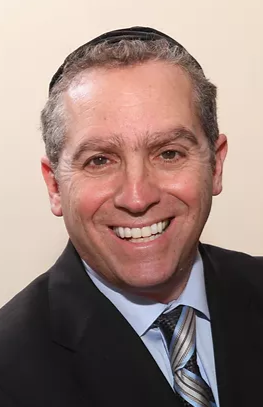
This Parasha differs from all the other Parashiot in the Torah, because it’s being told to us as an episode that happened to B'nei Yisrael without them being aware of what was going on. This is the only story in the Torah that was not witnessed by B'nei Yisrael and all that happens in this Parasha is going on behind the scenes.
The Parasha opens with Balak, the king of Moab. In Pasuk 3 we read: "Moab became very frightened of the people, because they were numerous and Moab was disgusted in the face of B'nei Yisrael". The Moabites became afraid that B'nei Yisrael would do battle with them, and they were concerned because B'nei Yisrael had just defeated Sihon. According to Rashi, the Moabites had relied on the mighty Amorite kings Sihon and Og for protection. If the kings were powerless to stop the Israelites, surely Moab was in mortal danger.
Or Hachaim asks the question: when Balak described B’nei Yisrael, he said: "There's a nation that was rescued from Egypt that is very numerous." Why does Balak describe B'nei Yisrael as being rescued from Egypt that way? Everyone knew that B'nei Yisrael were rescued from Pharaoh by Hashem! This was common knowledge that all the nations were aware of. It’s as if someone would say to us today: "Did you know there were two planes that flew into the World Trade Center and destroyed them!" Who doesn't know about 9/11?
The answer is that this was said as an attack on Bilaam, because he was an advisor to Pharoah and as a result of him not doing a good job, B'nei Yisrael had survived the Egyptians and were still around and continued to flourish.
The Parasha continues as Balak sends messengers to Bilaam to curse the Israelites. Bilaam was the greatest prophet that the gentile nations had ever had and he knew the exact moment of the day that Hashem was angry with B'nei Yisrael!
So Bilaam answered the officers, that they should stay the night and he would talk to Hashem and give them an answer in the morning. Hashem came to Bilaam and said to him that "He should not try to curse the Israelites, because they are a blessed people." Lo taor et haam, ki baruch hu!
The messengers went back to Balak and told him that he shouldn't curse the Israelites. Balak kept on sending more officers and higher level officers to convince Bilaam, who finally said that even if they offered him a house full of gold and silver he would not be able to do as they asked.
Hashem came to Bilaam and said "Im likro lecha bau ha’anashim, kum lech itam ve’ach et ha’davvar asher adaber elecha oto taaseh". "If these men have come to call for you, arise and go with them, but the word I speak to you, that you shall do."
Our Rabbis interpret this Pasuk as referring to an offer of gold and silver. Yet why did Hashem now say that it’s ok to go now that there’s an offer of money? Does Hashem care about silver and gold for Bilaam?
The answer is that Bilaam had a hatred for B'nei Yisrael and he would therefore take pleasure in trying to curse them but he was unable to do so. When he was offered all this money to curse them, it took away from the pure hatred that he had.
Now any curses from Bilaam would not be as effective because there would be an ulterior motive, so therefore Bilaam would not have the proper Kavanah and so any curse wouldn't have an affect on the Israelites.
The Torah continues the story to say that Bilaam got up early the next morning to saddle his donkey and to go with the officers to Balak. All of a sudden, the next Passuk says: "Vayechar af elokim, ki holech hu. " "Hashem’s anger flared at Bilaam, because he was going." Why did Hashem get so angry at Bilaam for going? Didn't Hashem just tell him that he should go?
This is similar to Parashat Shelah where the spies were anxious to spy out the land but it was wrong for them to do that, which Hashem let them know in a subtle way. In both situations they did not heed Hashem's true desires. They should have read between the lines and held back.
As Bilaam was on the way, an angel of Hashem stood in his donkey’s path so he couldn't go past, first to the right and then to the left, and then the angel of Hashem blocked the whole path, but still, each time Bilaam hit the donkey to go!
Hashem opened the mouth of the donkey to speak and the donkey said: "What have I done to you that you have struck me these three times?" In other words, Why are you hitting me? Haven't I always followed your orders well? Can't you figure out that there's a problem here and that's why I can't pass? So Hashem opened Bilaam's eyes and he was able to see that there was an Angel blocking his path, and so he became embarrassed because he realized that his faithful donkey was trying to save his life from the Angel.
Rashi says that this was not the Satan but the Angel of Mercy. This is an important lesson for all of us, to teach us that sometimes when we try and do something but for some reason unknown to us, it’s just not happening. No matter how hard we try and push, we must realize that it’s a sign from Hashem to stop and rethink what we're trying to accomplish. It must be that it will not be good for us in the long run but only Hashem would know that. It may be a house that we're trying to purchase or a business deal that we want to complete, etc.
The Angel now gave permission to Bilaam to pass with the officers of Balak, but the angel said to him: "Go with the men, but only the word that I shall speak to you, shall you speak!" So Bilaam said to Balak, as part of his own witchcraft: "Go and build seven alters and prepare seven bulls and seven rams."
The midrash tells us that Bilaam tried to curse B'nei Yisrael but it would not work, because any curse that Bilaam said would come out the opposite. For example, if he wanted curse them to be poor, the blessing for wealth would come out instead and if he wanted to curse them to be sick, they would be blessed for health. So Balak complained to Bilaam: "I have brought you here to curse B'nei Yisrael but you blessed them instead!" Bilaam answered: "How can I curse them if Hashem does not let me curse them and how can I get angry at them if Hashem is not angry with them?"
The midrash teaches that one of the blessings that Hashem caused Bilaam to say, was that there is no division among the Jewish people; they are as one and when they are united, then Hashem is with them and they cannot be cursed or destroyed! It’s like taking a single twig: anyone can break it, but if you put a bunch of twigs together, it becomes unbreakable!
Another blessing was when Bilaam saw the dwelling of B'nei Yisrael and said the famous line that we sing at the chupah of every Jewish wedding: "Mah tovu ohalecha yaakov mishkenotecha yisrael" “How great are your tents, O Yaakov, your dwelling places, O Israel". Bilaam saw the exemplary order of B'nei Yisrael's camps. The tribes maintained their separate identities, and the tents were arranged so that their entrances did not face one another, which prevented intrusions on the privacy of other families.
This was their practice so that the tribes and large extended family groups stayed together. This showed that the people felt responsible for one another, but at the same time they zealously protected the personal dignity and rights of individual families.
Another interpretation of these words 'mah tovu ohalecha' refers to our synagogues. How important it is to sanctify our Synagogues as expounded by Tosofot Yom Tov in the mid-1600's. He writes a blessing to be careful not to speak during Tefilah or Sefer Torah!
"He who blessed our forefather Avraham, Yitzchak and Yaakov, Moshe and Aaron, David and Shlomo, He will bless those who guard their mouth and tongue from speaking during prayers. The Holy One Blessed be He shall guard him from every trouble and distress and from every plague and illness, and he shall be subject to all the blessings written in the Torah of Moshe and all the Prophets and Scriptures, and he will merit to live and have healthy children whom he shall educate and nurture them to become Torah scholars, marry them off and educate them to do good deeds, and he shall eternally serve Hashem truthfully. Amen!"
May we all know that Hashem will never let another prophet or nation curse the Jewish people and may we always be a nation that is forever deserving the praise of the other nations, so that we may always sanctify Hashem's great name! Amen!
Parasha perspective By Jack E. Rahmey from the teachings and guidance of Rabbi Amram Sananes.







